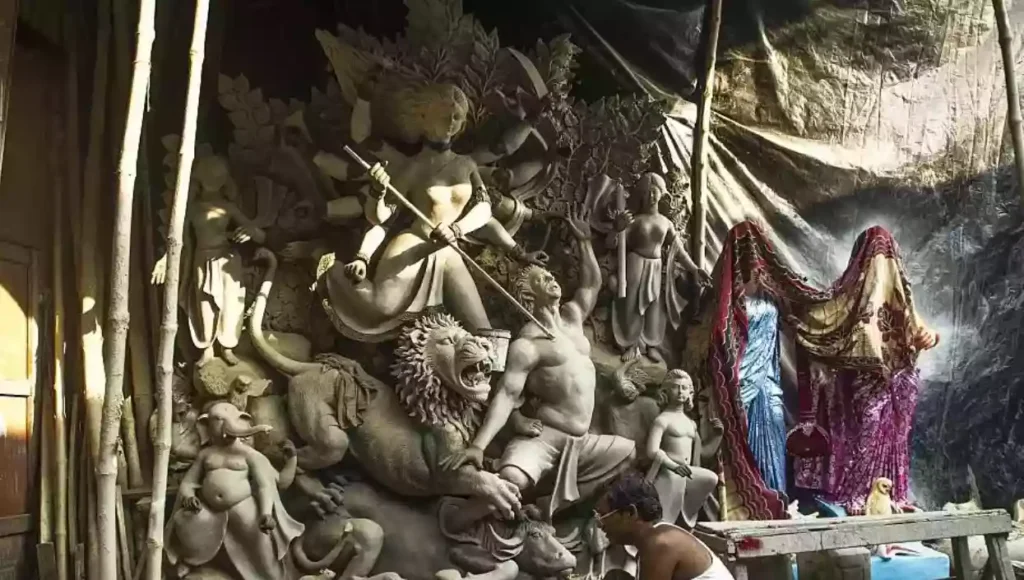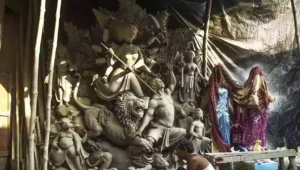
Erosion of Tradition: Why Durga Idol Makers Are Skipping Soil from Kolkata’s Red-Light District

As the vibrant festival of Durga Puja approaches, a significant shift is occurring in the traditional practices surrounding the creation of Durga idols. This year, sex workers from Sonagachi, Kolkata’s largest red-light district, have decided to withhold the sacred soil traditionally used in idol-making. This decision marks a poignant protest against ongoing violence and injustice faced by women, particularly in light of recent tragic events.
The Tradition of Using Soil

For generations, soil collected from the courtyards of brothels has been considered sacred in the making of Durga idols. This practice stems from the belief that the soil imbibes virtues shed by visitors who enter these spaces, thus making it a symbolically rich component in the creation of the goddess. Traditionally, artisans would visit Sonagachi to collect this “punya mati” or sacred soil, which is mixed with clay to form the idols that are central to the Durga Puja celebrations.
A Powerful Statement
However, this year’s refusal to provide soil is not merely a ritualistic change; it is a powerful statement against gender-based violence and societal neglect. The decision follows a horrific incident involving the rape and murder of a junior doctor at R.G. Kar Medical College, which has sparked outrage and protests across Kolkata. While initial rumors suggested that this decision was directly related to that tragic event, sex workers clarified that their choice to withhold soil stems from long-standing issues regarding their safety and recognition as professionals.An office bearer from the Durbar Mahila Samanwaya Committee, an association representing sex workers, stated, “This year we are not offering the courtyard soil as a mark of protest against the rape and murder of the woman doctor. Often the victims of rape do not get justice. It is high time that we raise our voices of protest in this matter.”
Community Reactions

The impact of this decision has reverberated throughout Kolkata. Some community Durga Puja committees have chosen to stand in solidarity with the protest by rejecting state government donations intended for their celebrations. This year, despite an increase in funding—from ₹70,000 to ₹85,000—many committees are aligning with the sex workers’ call for justice and recognition.The absence of Sonagachi soil will serve as a poignant reminder during the festival—a symbol of resistance and a plea for societal change regarding gender violence and discrimination.
The Broader Context
The refusal to provide soil highlights deeper societal issues surrounding sex work in India. Despite being integral to cultural practices, sex workers often face stigma and violence without legal protections or recognition for their profession. This protest not only draws attention to their plight but also emphasizes the need for broader societal acceptance and reform.
Conclusion
As Durga Puja approaches, the decision by Sonagachi’s sex workers to withhold soil represents a significant erosion of tradition intertwined with a powerful call for justice and recognition. The absence of this sacred element in idol-making will resonate deeply during the festivities, serving as both a reminder of ongoing struggles against gender-based violence and a testament to the resilience of marginalized communities. This year’s Durga Puja will not only celebrate tradition but also highlight urgent social issues that demand collective action and change.
Discover more from
Subscribe to get the latest posts sent to your email.







